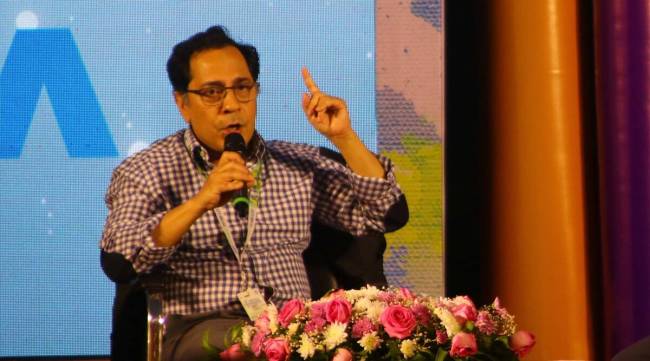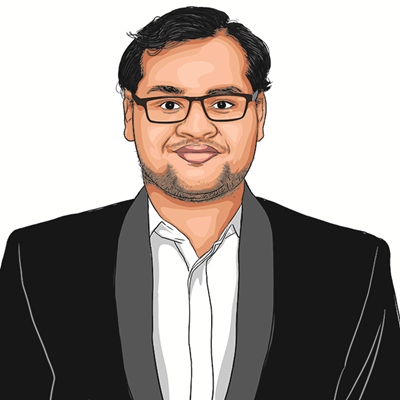Opinion Why Saurabh Kirpal needs to be appointed as judge
True equality and justice require representation of queer individuals in all three branches of the government
 The delay in elevating Saurabh Kirpal to the position of a high court judge even after the Collegium’s recommendation based on his “competence, integrity and intellect” reflects the government’s steadfast stance on homosexuality. (Express Photo by Shashi Ghosh)
The delay in elevating Saurabh Kirpal to the position of a high court judge even after the Collegium’s recommendation based on his “competence, integrity and intellect” reflects the government’s steadfast stance on homosexuality. (Express Photo by Shashi Ghosh) While working on a non-fiction book centred around alternate masculine sexualities for the past year, I have heard harrowing accounts of abuse. A young boy, medical student in Delhi, told me he met a man who posed as an anaesthesiologist on Grindr. He invited his date over to his house. The man whom he initially thought of as well-mannered robbed him. Almost reflexively, I asked him if he filed a complaint with the police. To which, he curtly responded: “Do you really think that was a choice available to me?” Such incidents are commonplace in the queer community even in this post-377 era.
The delay in elevating Saurabh Kirpal to the position of a high court judge even after the Collegium’s recommendation based on his “competence, integrity and intellect” reflects the government’s steadfast stance on homosexuality. Apart from the unwarranted reasons cited earlier — his advocacy of gay rights or his Swiss partner — the inordinate delay in itself seems to be a potent tool in deferring his candidature so that he runs out of time and becomes ineligible for the post. The basic tenets of the Constitution rely on offering ancillary assistance to those who are pushed to the periphery, but the tribulation Kirpal is made to undergo despite his merit highlights the government’s discriminatory practices and goes against the spirit of equality.
Whenever the issue of homosexuality comes up, the government uses section 377, that was read down, to its rescue. The headlines that made the rounds after this historic judgment declared “equality before the law” or “love wins”, while in reality, it has done nothing more than having India included in the list of 132 so-called “progressive” countries where being gay is not illegal. It’s true that this has allayed fears of legal prosecution and potentially helped uplift queer people in coming to terms with their sexual identity. The question, however, remains: Has this legal equality translated to social equality? Has it allowed homosexuals to imagine, let alone live, a life like that of heterosexuals?
True equality requires the representation of queer individuals in all three branches of the government: The legislative, the executive, and the judiciary, so that when laws are made, executed, or tried, they undergo scrutiny through queer eyes. A baby’s sex, and inevitably gender, gets frozen at birth as the law remains bogged down by the binary of men and women. Intersex bodies are often invisibilised in the process, or worse, are involuntarily allotted sex as per the doctor’s discretion. Even with a provision allowing a person to change their gender, questions around the liabilities of such a person remain unanswered. For example, if a person begins to identify as female, would they be eligible for reservation meant for women? Or would a marriage automatically dissolve if one of the partners decides to change their gender because same-sex marriages are not recognised in India? The botched NALSA judgment that mandated trans people to get themselves a certificate from a magistrate after physical examination, or the recriminalisation of homosexuality in 2013 after Section 377 was overturned in 2009 substantiate the need for active participation of the queer community in the government.
Saurabh Kirpal’s induction as a judge could be the first step in this long journey. His appointment will inspire a generation of young queer individuals who might look at him as a “role model” and aspire to become like him. Not only that, his presence will also make the bench more diverse, inclusive, and representative of the general composition of the country.
It will help give voice to the section that for a very long time has remained subjugated, by providing them with an equal platform to voice their experiences and observations. A diverse bench also signifies a judiciary that is fair, equal, and impartial which, in turn, induces public confidence in the judiciary.
The idea that justice is blind is half-baked. Often, judges have to be consulted when the provisions in law are not clear. In such a case, judges from marginalised sections bring with them a sense of justice informed and shaped by their backgrounds — allowing diverse considerations and unique solutions that can help homosexuals and heterosexuals alike.
Madras High Court Judge Anand Venkatesh while hearing a petition on two lesbian women seeking protection from police harassment, accepted without hesitation that he needs to be schooled on homosexuality before giving any judgment. While his honesty needs to be applauded, it also speaks to the need to introduce homosexuality in law schools and sensitising judges and advocates on these issues. More importantly, it underscores the need to have more queer judges.
The writer is a medical student and author of ‘Yeh Dil Hai ki Chordarwaja’






